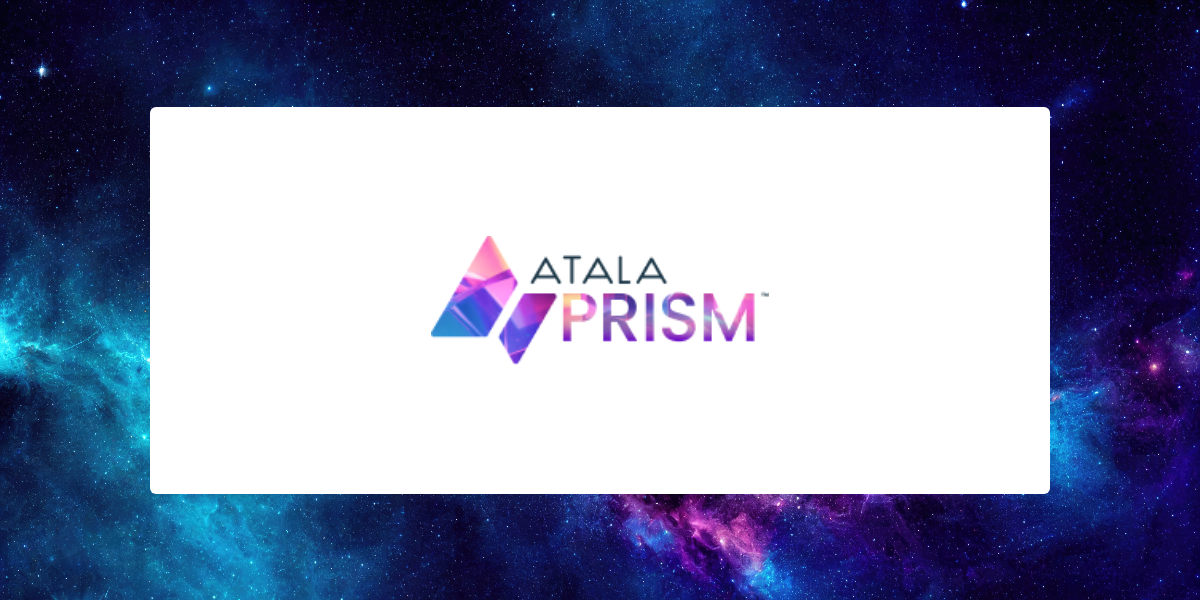Atala PRISM is a decentralized identity solution developed by IOHK (Input Output Hong Kong), specifically for the Cardano blockchain. It enables individuals and organizations to create, manage, and verify digital identities in a secure and privacy-focused way, giving users control over their personal data while enabling trusted interactions in both digital and real-world environments. Atala PRISM is part of Cardano’s larger vision to bring blockchain-based solutions to identity management, particularly in sectors such as education, finance, and government.
Project Status:
🟢 Active Key Features of Atala PRISM
- Decentralized Identity: Atala PRISM provides users with a self-sovereign identity (SSI), meaning individuals own and control their digital identities. This eliminates the need for centralized authorities or third parties to manage personal data.
- Verifiable Credentials: Atala PRISM allows for the issuance and verification of verifiable credentials, which are tamper-proof, blockchain-based records. These can be used to validate qualifications, work history, or certifications without exposing unnecessary personal information.
- Privacy and Security: The platform is designed with privacy in mind, using cryptographic techniques to allow selective disclosure of information. This means that users can share specific parts of their identity (e.g., proof of age) without revealing all their personal details.
- Use of Cardano Blockchain: Atala PRISM leverages the Cardano blockchain to store identity-related data in a decentralized, immutable, and secure manner. The blockchain ensures that identity credentials and verifications are trustworthy and accessible globally.
- Interoperability: Atala PRISM is built to be interoperable with existing systems and other blockchain-based identity platforms, making it adaptable for a wide range of industries, from education to healthcare to finance.
- Enterprise and Government Applications: Atala PRISM is designed to serve both enterprise and government needs. For example, it can be used for citizen identity verification, educational credentialing, and providing financial services in underserved regions. Governments and organizations can use it to issue digital IDs, certifications, or access credentials.
Use Cases:
- Education: Atala PRISM is used to verify educational credentials, allowing institutions to issue blockchain-based diplomas and certificates that employers can easily verify.
- Financial Inclusion: It helps individuals in underserved regions without traditional banking access to establish digital identities that enable them to participate in the global financial system.
- Government Services: Governments can issue digital identity cards or licenses, allowing citizens to access public services more efficiently while maintaining control over their personal information.
- Healthcare: Patients can use Atala PRISM to manage and share their medical records securely with healthcare providers while controlling who has access to their sensitive information.
Real-World Example:
In 2021, Atala PRISM was adopted by the Ethiopian government in a landmark project aimed at providing digital identity and educational credentials to 5 million students. The project involves issuing blockchain-based IDs to students and teachers, enabling a tamper-proof and easily verifiable system for tracking academic achievements and progress.
Benefits:
- User Empowerment: Individuals have full control over their digital identities and how their data is shared and used.
- Enhanced Trust: Verifiable credentials stored on the Cardano blockchain provide a high level of trust and security for identity verification processes.
- Reduced Fraud: By using blockchain technology to manage identities, Atala PRISM minimizes the risk of fraud, data manipulation, and identity theft.
In summary, Atala PRISM is a robust decentralized identity solution built on the Cardano blockchain, enabling secure, verifiable, and privacy-preserving digital identities for individuals, organizations, and governments. It supports real-world use cases such as educational credentialing, financial inclusion, and government services, promoting trust and privacy in identity management.


Leave a Reply